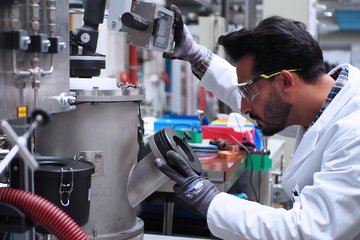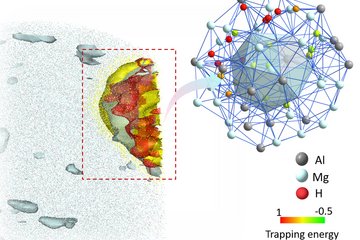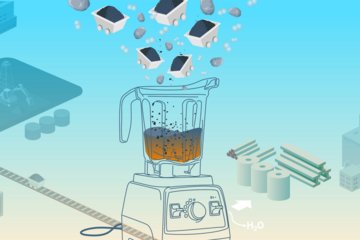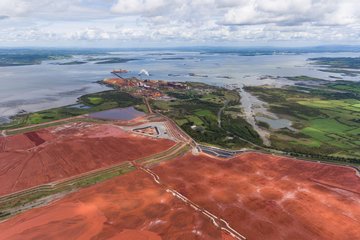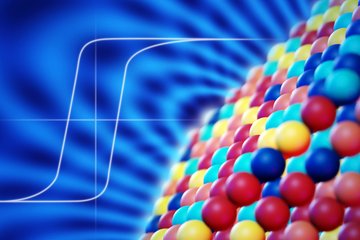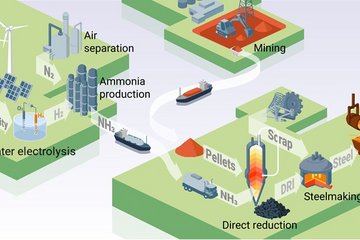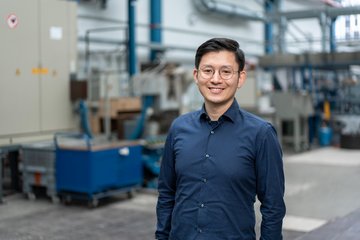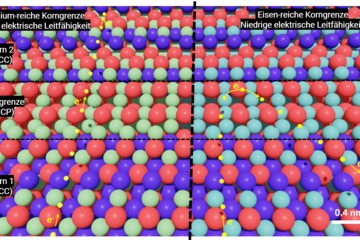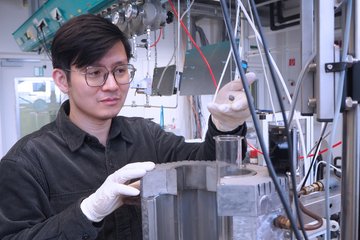Alle Typen
321.
Vortrag
Photocatalytic water splitting and photocorrosion of BiVO4. International Workshop Microscale Motion and Light, Dresden, Germany (2019)
322.
Vortrag
Materials for renewable energy applications. Metallurgical Engineering and Materials Science Department Colloquium, Indian Institute of Technology, Mumbai, India (2019)
323.
Vortrag
Pathways for fabrication of amorphous and crystalline multinary nanoparticles for electrocatalyst. 14th International Conference on Materials Chemistry MC14, Birmingham, UK (2019)
324.
Vortrag
Effect of planar defects on the thermal conductivity of Ag16.7Sb30Te53.3 bulk thermoelectric. 6th German/Korean Thermoelectric workshop, Daegu, South Korea (2019)
325.
Vortrag
Preparative and analytical challenges in electron microscopic investigation of nanostructured CuInS2 thin films for energy applications. Microscience Microscopy Congress (MMC) 2019, Manchester, UK (2019)
326.
Vortrag
Electron microscopy studies of Nb3O7(OH) nanostructured cubes - insights in the growth mechanism. Microscience Microscopy Congress MMC2019, Manchester, UK (2019)
327.
Vortrag
Microstructure and thermomechanical deformation of CrFeCoNi equiatomic CCA thin films. 26th International Symposium on Metastable, Amorphous and
Nanostructured Materials ISMANAM - 19, Chennai, India (2019)
328.
Vortrag
Annealing treatment in various atmospheres: A tool to control structure and properties of TiO2 nanowires. 6th International Symposium on Metastable, Amorphous and Nanostructured Materials (ISMANAM-2019), Chennai, India (2019)
329.
Vortrag
Effect of interfaces on the photoelectrochemical performance of functional oxides. PICS3 2019 Meeting, Centre Interdisciplinaire de Nanoscience de Marseille, Marseille, France (2019)
330.
Vortrag
Advanced Cs corrected STEM imaging coupled to 3D atom probe tomography. SCANDEM 2019, Gothenburg, Sweden (2019)
331.
Vortrag
Electron microscopic investigation of the influence of plasma parameters on VOx films deposited by a plasma ion assisted process. E-MRS 2019 Spring Meeting, Nice, France (2019)
332.
Vortrag
κ carbide microstructures and the role of interfaces in high-Mn lightweight steels. High-Mn Steel 2019, Aachen, Germany (2019)
333.
Vortrag
The importance of crystallographic defects in Ag16.7Sb30Te53.3 thermoelectric bulk materials for the thermoelectric properties. EBSD conference 2019, National Physical Laboratory, Teddington, London, UK (2019)
334.
Vortrag
From Atomistic Understanding to Engineering Design of Advanced Medium and High Manganese Steels. 4th International Conference on medium and high Manganese steels, Aachen, Germany (2019)
335.
Vortrag
Asymmetric Line Segregation at Faceted Si Grain Boundaries. TMS 2019 Annual Meeting & Exhibition, San Antonio, TX, USA (2019)
336.
Vortrag
Correlation of Microstructures and Thermal Conductivity of the Thermoelectric Material Ag16.7Sb30Te53.3. North American Thermoelectric workshop, Northwestern University, Eanston, Chicago, IL, USA (2019)
337.
Vortrag
The thermal conductivity of Ag16.7Sb30Te53.3 bulk thermoelectric with high density of planar faults. 38th/4th International and Asian Conference on Thermoelectrics , Gyeongju, South Korea (2019)
338.
Vortrag
Correlation of crystallographic defects in Ag16.7 Sb30Te53.3 thermoelectric bulk materials with their thermoelectric properties. MRS Fall Meeting & Exhibit, Boston, MA, USA (2018)
339.
Vortrag
Structural Investigation of 2D Nanosheets and their Assembly to 3D Porous Morphologies. 5th International Conference on Electronic Materials and Nanotechnology for Green Environment (ENGE 2018), Jeju, Korea (2018)
340.
Vortrag
Insights in the structure and functionality of doped and undoped Nb3O7(OH) nanoarrays. nanoGe Fall Meeting 2018, Torremolinos, Spain (2018)
